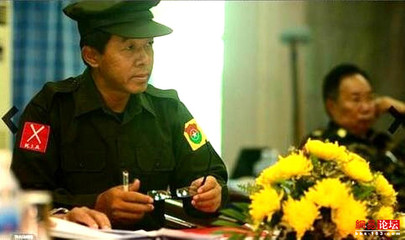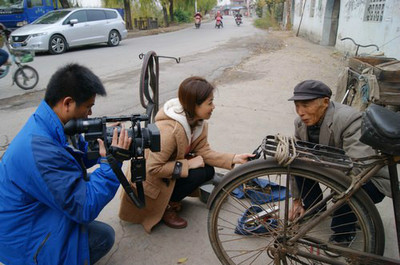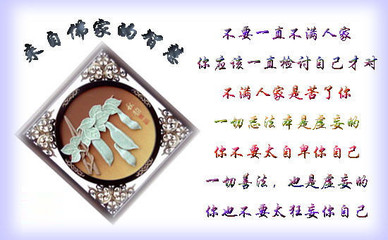近日《伊洛瓦底江新闻杂志》采访了克钦独立军副总参谋长甘茂将军,甘茂将军就政府军改革、和平进程、中克关系、昂山素季、泰扎、密松大坝等阐述了立场。
记者:KIO和其他少数民族组织说,他们希望政府军转型为联邦军。你们打算怎么做?
甘茂:我们还没有达到“怎么做”的阶段。我们希望政府军是一支由各族人组成的军队,因为我们都生活在这个国家。这就是我们要求成立联邦军的理由。但如何将目前的政府军转型,则是一件必须同各相关方讨论的事。
政府军的作用非常重要,我们也不能抹去它与缅甸独立斗争俱始的历史。将来的联邦政府军将不同于现在的政府军,但这并不意味着我们打算摧毁现有政府军再用新的替代。关键的是我们如何将其转型以及我们如何加入它。
记者:政府要求KIO交出人员清单和武器弹药的详细数据,还要求你们停止建设营房和招录新兵。你们的答复是什么?
甘茂:政府必须依据政府和少数民族武装组织必须共同遵守的行为规范。例如,如果政府要求少数民族武装组织不得招募新兵,那么政府也必须创造无需招募新兵的条件。
我们不可能在战斗持续和遭受压迫的情况下停止招兵,而必须备战。但若政府创造了有利于形势改善的条件,那么我们自会尽自己的责任。
记者:中国深度参与和平进程,特别是在涉及中缅边界少数民族武装组织的事项上。中国在KIO和缅甸政府之间扮演什么角色?
甘茂:克钦邦和克钦人民一直与中国保持有力联系,因为克钦人跨居边界两侧,而这是不可改变的事实。也存在把缅甸和中国联系在一起的因素,如边贸,因此他们是邻居也不能分开。然而,北京同KIO的关系大大不同于与缅甸政府的关系,并不直接与KIO沟通或提供援助。但至今也没有施压KIO。
记者:中国不是施压KIO同缅甸政府谈判停火吗?
甘茂:由于KIO和政府军之间的冲突主要发生在中国边界附近,因此停火对中国的利益是重要的。在边界我侧发生的战事也会在对方一侧引发问题。因此中国要求KIO不要在这些地区交战。但我们听说他们也向政府提出了同样的要求。所以,我不把它当成是施压。
记者:你怎样看待今日缅甸的和平进程?
甘茂:我们从积极方面来看待。以前双方难以会面,而今经常会面并建立了更深了解。政府和少数民族武装组织已经能够交流各自立场,这是好兆头。

记者:许多克钦人批评昂山素季女士。你或KIO如何评价她?
甘茂:克钦人民是在2011年6月军事冲突再次爆发后开始批评昂山素季女士的。此前,全体克钦人民都是非常积极地评价她。他们深深地寄望于她,所以当因为所处的政治环境使得她不能如他们所愿地表达热诚之时,人们感到非常失望。
KIO领导人们一直视昂山素季女士为一位有能力、能胜任的领袖。我们认为,讨论全国性事务时应该请她参加。其他卓越人士也须邀请参加。国内国际都有人认为她能解决所有民族问题,但是我认为少数民族不会将自己的命运交付于她,而是会同她携手并肩寻求解决。
记者:你怎样看待吴泰扎在克钦邦经济中的地位?据说他在克钦邦获得了大量用于采矿业和度假业的土地。
甘茂:我最近在仰光同他会面了,当时我要求他提供有关在克钦邦进行商业活动的信息。他说他会的。等到了解了这些活动对我们人民的影响,我们会同他进行讨论。我们欢迎为人民贡献福利的商人,但也坦率反对任何伤害人民利益的事。
据我们所知,泰扎目前在我们的土地上采矿(包括掘金和开挖小型铜矿)和伐木。我们听说他在葡萄地区获得了一片土地。我们向他了解情况,他说他会致力于保护当地环境。我们需要知道他是否会履行诺言。
记者:KIO对中国背景的密松大坝项目持什么立场?
甘茂:该项目第一次被报道时我们就给丹瑞大将和中国政府都写了信,反对建设密松大坝。密松地区对本地人民具有历史意义,而且也是整个国家的生命线。这就是我们反对的理由。我们仍然坚持这个立场。
记者:有人指控吴登盛总统和缅甸和平中心(MPC)不是搞和平进程而是搞利用少数民族组织的“和平买卖”。你怎么看?
甘茂:落实进程的方式可能存在些问题,但我们并不同意他们的说法。有多个和解委员会参加了这个进程,坦率地说,KIO认为MPC是个实干的组织。
记者:你提到自缅甸独立斗争以来,政府军就在缅甸发挥着核心作用。同时,它又被指责这些年来犯下无数践踏人权的罪行。政府军既是核心机构又是不断践踏人权者,二者怎么能二位一体?
甘茂:从独立斗争到奈温将军的复兴委员会夺取国家权力之前,政府军中有克钦、克伦、克耶、钦、孟、若开和掸各族人。因此我们可以说历史上政府军曾是各族共同努力的产物。
然而,复兴委员会掌权后非缅族族群的作用逐渐消失。此后,少数民族最高只能担任中级军官。将来,政府军不能这样。一旦改革,便能恢复其积极作用。
Toward a Federal Tatmadaw
ByTHEIRRAWADDY|Saturday, January 11, 2014 |
Over the past two and a half years, Myanmar has madeunprecedented progress toward ending its long history of civilconflict. During the same period, however, fighting has resumedbetween the government army, or Tatmadaw, and the armed wing of theKachin Independence Organization (KIO), demonstrating that apermanent peace is far from assured.
Recently, The Irrawaddy’s Lin Thant had a chance to speakto Maj-Gen Gun Maw, the deputy chief of the Kachin IndependenceArmy and a key negotiator in talks with the government andTatmadaw, about what the country’s ethnic armed groups hope toachieve in the ongoing peace process—including their vision of amore inclusive federal armed forces, which many see as central toending endemic armed conflict in Myanmar.
Question:The KIO and other ethnic groups say they want totransform the Tatmadaw into a federal army. How do you propose todo that?
Answer: Wehaven’t reached the “how” stage yet. What we want is a Tatmadawthat includes all nationalities, because we all live in thiscountry together. That’s why we are calling for a Federal UnionArmy. But how to transform the current Tatmadaw is something thatwe have to discuss with everyone concerned.
The roleof the Tatmadaw is very important and we can’t eradicate itshistory, which began with Myanmar’s independence struggle. Thestructure of the future federal Tatmadaw will be different fromthat of the existing one, but that doesn’t mean that we are goingto destroy it and replace it with something new. The main thing ishow we will transform and participate in it.
Q:The government has called on the KIO tosubmit a list of all its members, as well as figures detailing howmany weapons it has and how much ammunition. It also wants you tostop building new camps and recruiting new soldiers. What is yourresponse to this?
A: Itdepends on the code of conduct, which both the government and theethnic armed groups have to adhere to. For example, if thegovernment tells the ethnic armed groups not to recruit newsoldiers, it also has to create conditions under which they willnot need to do so.
It will beimpossible for us stop recruiting if fighting continues and we arestill under repression. We have to prepare for coming battles. Butif the government created conditions conducive to improving thesituation, we are ready to do our part.
Q:China has been very involved in thepeace process, especially in matters related to ethnic armed groupsbased along the Myanmar-China border. What role does China playbetween the KIO and the Myanmar government?
Q:What do you think of the peace processin Myanmar today?
A: KachinState and the Kachin people have always had strong ties with China,because there are Kachin people on both sides of the border, andthis is something that can’t be changed. There are also things thatbring Myanmar and China together, including border trade, so theycan’t be separated either, since they are neighbors. However,Beijing’s relationship with the KIO is very different from its tiesto the Myanmar government. It doesn’t communicate with or provideassistance to the KIO directly. Nor has it pressured the KIO, sofar.
Q:But didn’t China push the KIO to engagein ceasefire talks with the Myanmar government?
A: Aceasefire is important for China’s interests because clashesbetween the KIO and government troops mainly take place in borderareas adjacent to China. So whenever fighting breaks out on ourside of the border, it causes problems on their side. Consequently,China asked the KIO not to engage in battles in these areas. But wehave also heard that they made the same request to the government.So I don’t think we can consider such acts as pressure.
A: We seeit in a positive light. Before, it was difficult for both partiesto meet in person, but now we can meet often and build up greaterunderstanding. The government and ethnic armed groups have beenable to share their positions on each other, which is a goodsign.
Q:Many Kachin people have been criticalof Daw Aung San Suu Kyi. What is your opinion, or the KIO’sopinion, of her?
A: Kachinpeople started criticizing Daw Aung San Suu Kyi after armed clasheserupted again in our land in June 2011. Before that, all Kachinpeople spoke of her in very positive terms. They also put a greatdeal of hope in her, so when, because of the political situationshe was in, she didn’t show as much sympathy for them as they hadexpected, they were very disappointed.
Theleaders of the KIO have always regarded Daw Aung San Suu Kyi as acapable and competent leader. When we get to the point that westart talking about issues related to the whole nation, she needsto be included. Other prominent individuals have to be there aswell. Some people within the country and in the internationalcommunity seem to think that she will be able to resolve all ethnicissues, but I would say that the ethnic nationalities won’t entrusttheir fate to her. Instead, they will join hands with her infinding solutions.
Q:What do you think about U Tay Za’seconomic role in Kachin State, where he is said to have acquired alarge amount of land for businesses ranging from mining toresorts?
A: Irecently met him in Yangon, where I asked him to provideinformation about his business activities in Kachin State. He saidhe would. When we know more about how these activities will affectour people, we can discuss this with him. We welcome businesspeoplewho can contribute to the well-being of our people. But we have tospeak out against anything that hurts their interests.
As far aswe know, Tay Za is currently engaged in mining, including goldexcavation and small-scale copper minin[]g, and logging in our land.We’ve heard that he has acquired a lot of land in the Putao area.When we asked him about this, he said he will focus onenvironmental conservation there. So we need to know if he willkeep his word on this.
Q:What is the KIO’s position on theChinese-backed Myitsone Dam project, which the government suspendedin September 2011?
A: Wewrote an official letter to both Snr-Gen Than Shwe and the Chinesegovernment rejecting the construction of the Myitsone Dam after theproject was first reported. The Myitsone area is historicallyimportant for local people, and is also the lifeline of the wholecountry. That’s why we opposed it. We still hold thatposition.
Q:Some have accused President U TheinSein and the Myanmar Peace Center (MPC) of engaging not in a peaceprocess but in a “peace business” that seeks to exploit ethnicgroups. What are your thoughts on this?
A: Theremay be problems with the way the process is being implemented, butwe don’t interpret these problems in the way that you described.There are several peace-making committees involved in this process,but to be frank, from the KIO’s point of view, the MPC is the bodythat is really working.
Q:You’ve noted that the Tatmadaw hasplayed a central role in Myanmar since the days of the country’sindependence struggle. At the same time, it has been accused ofcommitting countless human rights violations over the years. Howcan these two—the Tatmadaw as a central institution, and theTatmadaw as a serial violator of human rights—bereconciled?
A: Fromthe time of the independence struggle until state power was seizedby Gen Ne Win’s Revolutionary Council, there were Kachin, Kayin,Kayah, Chin, Mon, Rakhine and Shan people in the Tatmadaw. So wecan say that historically, the Tatmadaw was a product of theefforts of all ethnic nationalities.
However,the role of non-Burman ethnic groups gradually declined after theRevolutionary Council took over. After this, members of ethnicminorities couldn’t even reach the level of mid-ranking officers.In the future, the Tatmadaw shouldn’t be like this. If it isreformed, its positive role can be restored.
This storywas first published in the January 2014 print edition of TheIrrawaddy magazine.
 爱华网
爱华网

